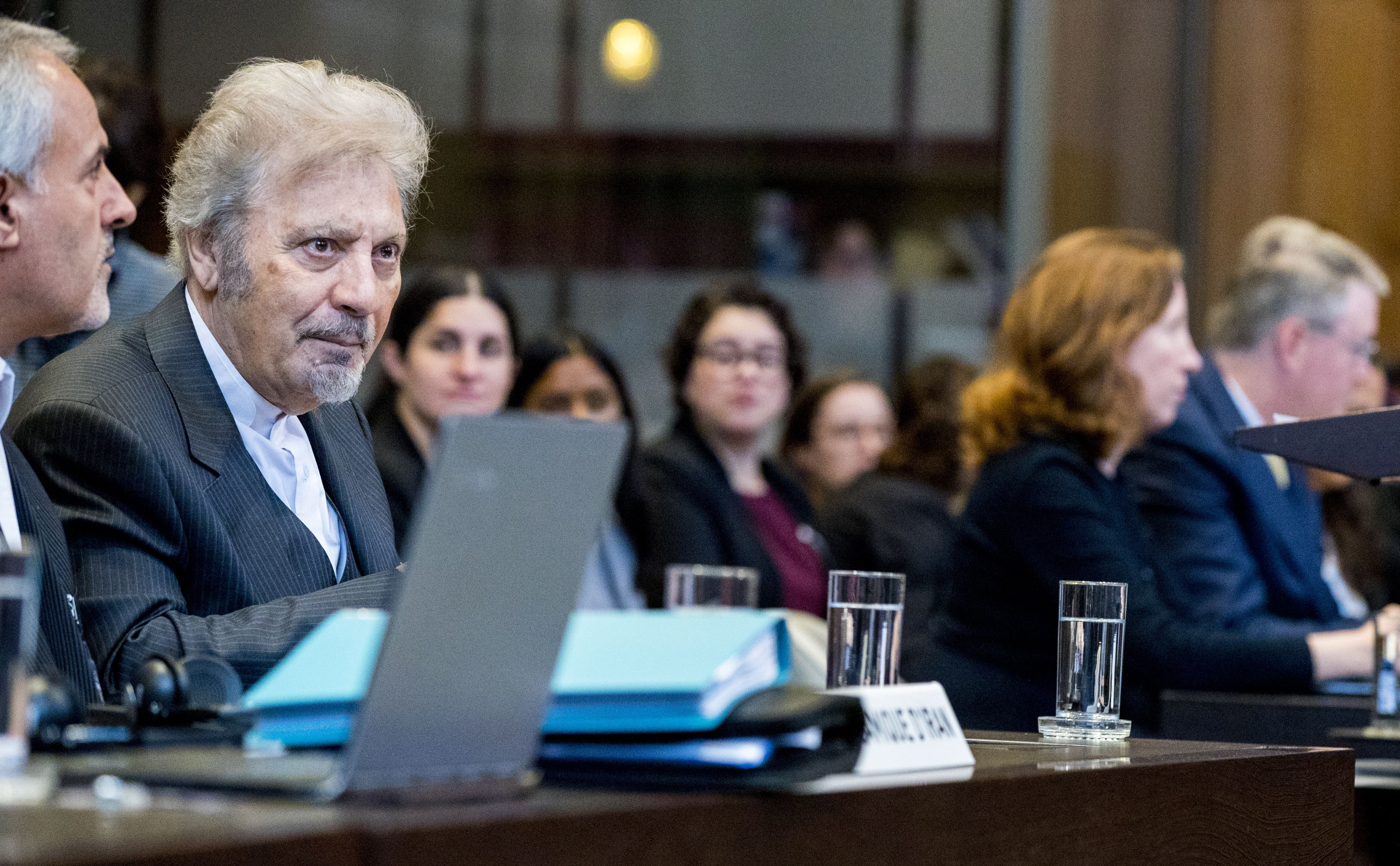Iran tells UN court ‘time running out’ under US sanctions
Mohebi said “time is running out” for the Iranian people under US sanctions (Jerry Lampen)
The Hague (AFP) – Iran told the UN’s top court Wednesday that “time is running out” for its people as they suffer economic turmoil that Tehran blames on renewed US sanctions.
Iran was making its closing arguments in a challenge to the sanctions at the International Court of Justice in The Hague.
US President Donald Trump reimposed the sanctions after pulling out of a multilateral 2015 accord in May.
Iran has asked the court to order the United States to lift them.
US lawyers have retorted that the sanctions are necessary to protect international security.
They said economic mismanagement is at the root of Iran’s woes and that the ICJ — set up in 1946 to rule in disputes between countries — does not have jurisdiction to rule on Iran’s demand.
Washington reintroduced some sanctions this month, targeting financial transactions and imports of raw materials, cars and aircraft.
The measures have driven international companies to abandon projects in Iran.
A second wave of US measures is due to hit Iran in early November, targeting its vital energy sector including oil exports.
“For the Islamic Republic of Iran, time is running out,” Iran’s representative Mohsen Mohebi told the ICJ’s judges on Wednesday.
“The lives of millions of people residing in this country are already deeply suffering from the sanctions reinstated by the United States… and will further suffer as these sanctions are expanded and aggravated.”
Tehran is basing its claim on the obscure 1955 Treaty of Amity and Economic Relations, signed with the United States long before Iran’s Islamic revolution.
Despite the treaty, the two countries have not had diplomatic ties since 1980.
Disclaimer: This story has not been edited by Siliconeer and is published from a syndicated feed. Siliconeer does not assume any liability for the above story. Validity of the above story is for 7 Days from original date of publishing. Content copyright AFP.


